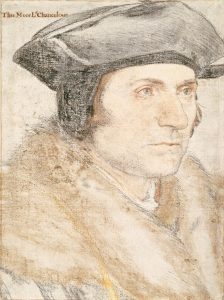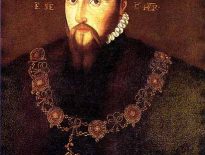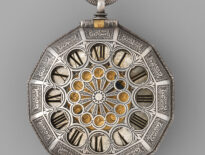 Did you know that Sir Thomas More knew the risks of serving King Henry VIII, knew that it could cost him his head, and yet he chose to serve him anyway?
Did you know that Sir Thomas More knew the risks of serving King Henry VIII, knew that it could cost him his head, and yet he chose to serve him anyway?
Thomas More wasn’t just a lawyer or a statesman. He was one of the most brilliant minds of his time—a humanist who believed in reason, faith, and justice. But he also had a sharp insight into human nature, particularly that of the king he served.
By 1514, More had risen to become a privy councillor, and it wasn’t long before he became one of Henry VIII’s most trusted advisors. In 1529, after the dramatic fall of Cardinal Wolsey, More was appointed Lord Chancellor, the most powerful position in the king’s government. He effectively became Henry’s right-hand man.
And yet, More knew the dangers of being so close to the king. He knew that Henry’s favour was fickle, that the king’s desires and ambitions could change in an instant, and that anyone—even the most loyal servant—could find themselves on the wrong side of history.
We know this from a famous quote recorded by More’s son-in-law, William Roper. More once told him:
“I find his Grace my very good lord indeed, and I do believe he doth as singularly favour me as any subject within this realm. Howbeit, son Roper, I may tell thee, I have no cause to be proud thereof. For if my head would win him a castle in France, it should not fail to go.”
More was saying that his head—his very life—meant nothing to Henry if it stood in the way of the king’s desires. More knew that Henry was willing to sacrifice even those closest to him if it would serve his goals. His closest advisor’s head could go if it meant a castle for the king – and this was a man who was a good friend of the king, even a father figure.
But here’s the interesting part. Despite knowing the dangers, More continued to serve the king. He chose duty over personal safety. Why?
Well, More was a man of deep conviction. He believed in serving his country and doing his duty, even if it meant putting himself in harm’s way. And perhaps he also believed he could influence the king for the better—that he could guide his younger man down the right path. Perhaps he saw serving him as his God-given destiny.
But in the end, More’s insight proved tragically true.
Henry’s infamous break with Rome over his marriage to Anne Boleyn put More in an impossible position. As a staunch Catholic, More couldn’t, in good conscience, support the king’s actions. His refusal to recognise Henry as Supreme Head of the Church of England and his refusal to acknowledge the annulment of Henry’s marriage to Catherine of Aragon sealed his fate. He tried to do the right thing. He resigned the chancellorship and didn’t speak out against the king and what he was doing, but it did him no good. He was arrested, thrown into the Tower of London and then interrogated by members of the king’s council, who wanted to trick him into speaking out against the king. He wouldn’t give them a straight answer, saying, “The law and statute whereby the King is made Supreme Head as is aforesaid be like a sword with two edges; for if a man say that the same laws be good then it is dangerous to the soul, and if he say contrary to the said statute then it is death to the body. Wherefore I will make thereunto none other answer, because I will not be occasion of the shortening of my life.”
More refused to voice his denial of the king’s supremacy over the Church in England, but unfortunately, Thomas Cromwell produced Richard Rich to claim that he had heard More deny that the king was head of the Church. After hearing this, More spoke up and said that “no temporal man may be the head of the spirituality”. It was an out and out denial of the supremacy.
More was tried for treason and although he pleased not guilty, he was found guilty under the 1534 Treason Act and sentenced to death. He was beheaded on Tower Hill on 6th July 1535, not for a castle, but because the king wanted to be head of the church, and, of course, marry Anne Boleyn.
It’s chilling to think that More predicted his own downfall, long before it happened. He understood the nature of power and the risks of serving a king like Henry VIII. Yet, he chose to serve. He chose principle over self-preservation.



Leave a Reply